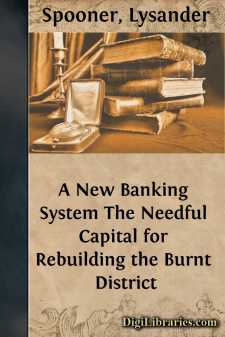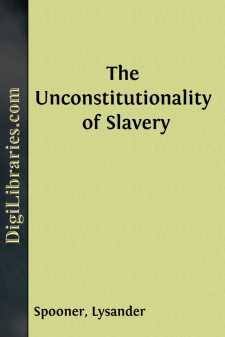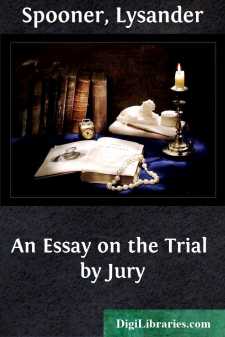Categories
- Antiques & Collectibles 13
- Architecture 36
- Art 48
- Bibles 22
- Biography & Autobiography 813
- Body, Mind & Spirit 142
- Business & Economics 28
- Children's Books 17
- Children's Fiction 14
- Computers 4
- Cooking 94
- Crafts & Hobbies 4
- Drama 346
- Education 46
- Family & Relationships 57
- Fiction 11829
- Games 19
- Gardening 17
- Health & Fitness 34
- History 1377
- House & Home 1
- Humor 147
- Juvenile Fiction 1873
- Juvenile Nonfiction 202
- Language Arts & Disciplines 88
- Law 16
- Literary Collections 686
- Literary Criticism 179
- Mathematics 13
- Medical 41
- Music 40
- Nature 179
- Non-Classifiable 1768
- Performing Arts 7
- Periodicals 1453
- Philosophy 64
- Photography 2
- Poetry 896
- Political Science 203
- Psychology 42
- Reference 154
- Religion 513
- Science 126
- Self-Help 84
- Social Science 81
- Sports & Recreation 34
- Study Aids 3
- Technology & Engineering 59
- Transportation 23
- Travel 463
- True Crime 29
Lysander Spooner
Lysander Spooner (1808–1887) was an American political philosopher, abolitionist, and legal theorist known for his strong advocacy of individual liberty and natural law. He is best remembered for his pamphlet "No Treason: The Constitution of No Authority," where he argued that the U.S. Constitution was not a legitimate contract. Spooner also founded the American Letter Mail Company, challenging the government monopoly on mail delivery, though it was eventually shut down by the state. His writings greatly influenced libertarian and anarchist thought, particularly in opposing slavery and promoting voluntaryism.
Author's Books:
Sort by:
by:
Lysander Spooner
CHAPTER I. A NEW BANKING SYSTEM. Under the banking system—an outline of which is hereafter given—the real estate of Boston alone—taken at only three-fourths its value, as estimated by the State valuation—is capable of furnishing three hundred millions of dollars of loanable capital. Under the same system, the real estate of Massachusetts—taken at only three-fourths its estimated value—is...
more...
by:
Lysander Spooner
WHAT IS LAW? Before examining the language of the Constitution, in regard to Slavery, let us obtain a view of the principles, by virtue of which law arises out of those constitutions and compacts, by which people agree to establish government. To do this it is necessary to define the term law. Popular opinions are very loose and indefinite, both as to the true definition of law, and also as to the...
more...
by:
Lysander Spooner
CHAPTER I. THE RIGHT OF JURIES TO JUDGE OF THE JUSTICE OF LAWS. SECTION I. For more than six hundred years—that is, since Magna Carta, in 1215—there has been no clearer principle of English or American constitutional law, than that, in criminal cases, it is not only the right and duty of juries to judge what are the facts, what is the law, and what was the moral intent of the accused; but that it...
more...




